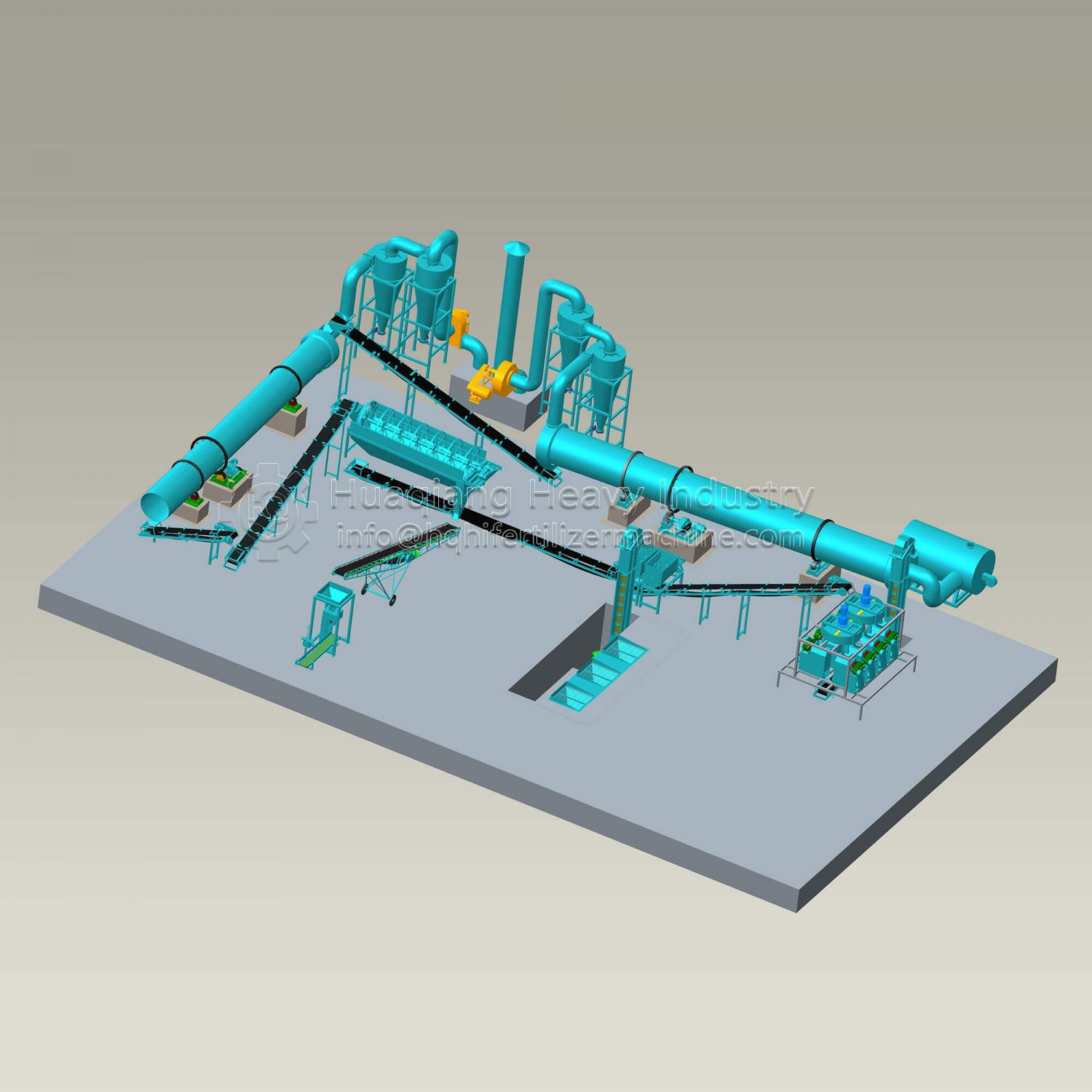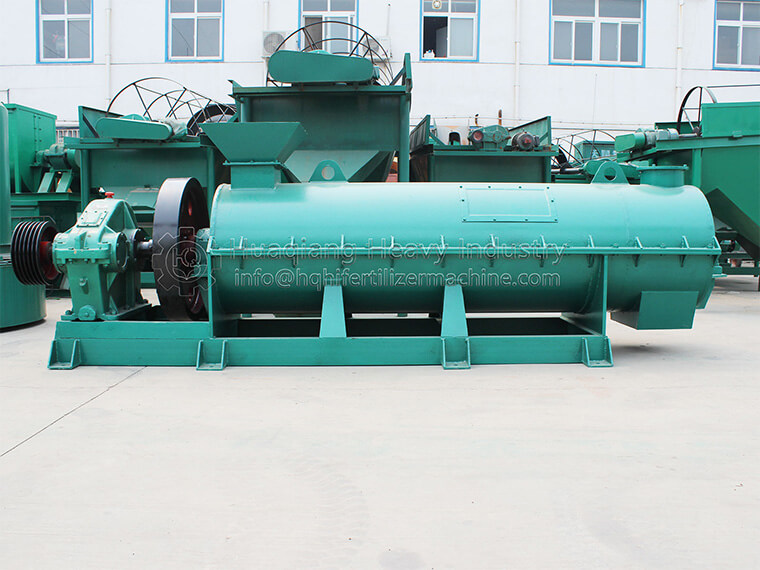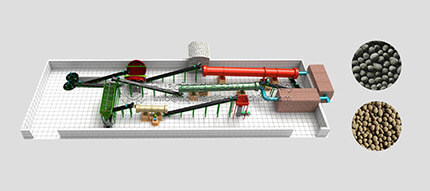A large amount of livestock and poultry manure produced by the farm is used to produce green organic fertilizer, organic fertilizer is returned to the field to plant organic agriculture, agricultural waste and agricultural fruits are fed to various livestock and poultry, forming a natural and natural green ecological biological chain, maintaining ecological balance, and allowing us to rediscover our garden life.
What procedures are required to run a small organic fertilizer equipment processing plant?
First of all, fertilizer registration certificate is required: to produce bio-organic fertilizer, fertilizer registration certificate is required. Many fertilizer enterprises are preparing to produce bio-organic fertilizer, so does bio-organic fertilizer need to apply for fertilizer registration certificate? Of course. The bio-organic fertilizer processed by the organic fertilizer production line belongs to a kind of microbial fertilizer, and its executive standard is NY884-2012 bio-organic fertilizer. The index requirements are: the effective number of live bacteria is greater than or equal to 20 million/g, and the organic content is greater than or equal to 40.0%, and the registration certificate of microbial fertilizer is required. This kind of fertilizer is registered by the Ministry of Agriculture, and the specific procedures can be consulted with the regional fertilizer registration and management office (soil fertilizer station).

General requirements:
1. The applicant shall be a fertilizer producer with independent legal personality and formally registered by the industrial and commercial administration. It also has the production equipment and testing facilities for microbial fertilizer, and can carry out the production and quality inspection of bio-organic fertilizer. Fertilizer producers in foreign countries, Hong Kong, Macao and Taiwan can apply for fertilizer by their offices or entrusted agencies in China.
2. To apply for fertilizer registration, fill in the application form and provide relevant information according to the type of registration. The registration data provided by the applicant shall list the general directory, including the title, arrangement and page number of all data. According to the Measures for the Administration of Fertilizer Registration, there are four types of fertilizer registration:
(1) Fertilizer products that need field demonstration test and trial sale after field plot test
Submit a Feasibility Study Report to the Bureau of Industry and Information Technology for project approval → Environmental Protection Department (EIA) → Development and Reform Commission (formal project approval) →
Apply for industrial and commercial business license → tax registration certificate → organization code certificate → registered capital (bank account opening)
1. To establish a company, the business scope must include “organic fertilizer”, or “refined organic fertilizer”. You can look at the “Company Law” to handle the formalities required by the company. After obtaining the business license, we need to complete all the procedures required by the company, including tax registration, enterprise code certificate, etc.
2. Start a factory. During the application process of fertilizer registration, relevant personnel will come to the factory to take samples for testing. In fact, there are two purposes for sampling in the factory. One is to see whether your factory is standardized, and the other is to take samples personally to check whether your products meet the standards. So you have to build a decent factory in advance.
3. Apply for trademark. You must apply for your own trademark. This is troublesome because the first 50 good words you can think of have been registered by others. Your trademark should not only be loud and express your own brand characteristics, but also cannot be repeated with others.
4. Product self-inspection. Through repeated tests, we can make our products meet the NY525-2012 standard, that is, the total nitrogen, phosphorus and potassium nutrients should be ≥ 5%, the organic matter should be ≥ 45%, and the water content should be ≤ 30%. These are the main indicators, as well as the PH value, heavy metals and other indicators, which should meet the requirements.
5. Apply. With the company’s business license, factory and its own trademark, you can apply to the Provincial Department of Agriculture for fertilizer registration. Now many provinces have implemented the government hall office system, and they will follow their instructions after the hall is accepted. What they need to do later is to sample in your factory.
6. Get fertilizer registration certificate. If the plant and the sample are tested to be qualified, the Provincial Department of Agriculture will issue a fertilizer registration certificate.
After handling all the opening procedures, it is necessary to select the appropriate site for the plant construction. The general principle for the selection of the plant site for the organic fertilizer equipment is as follows: far away from the residential area, select the downdraft; Adjust measures to local conditions, compact layout, and try to use the abandoned land: separate the living area from the plant site to maintain environmental sanitation.








.jpg)
